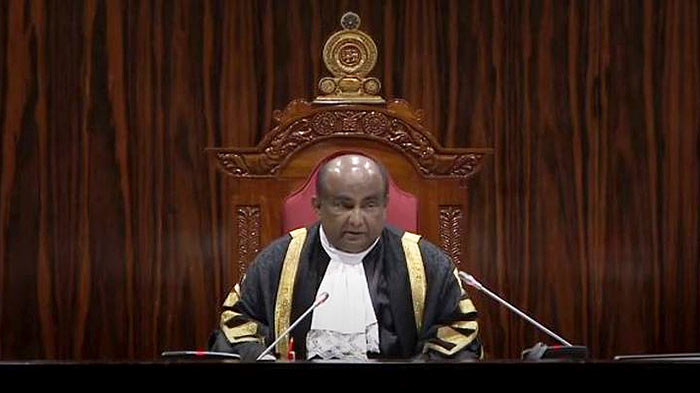Supreme Court rules Sri Lanka’s “Gender Equality” bill inconsistent with constitution

Sri Lanka’s Supreme Court has ruled that the proposed bill titled “Gender Equality” is inconsistent with Article 12 of the Constitution.
The Court specified that the bill cannot be enacted into law unless it follows the prescribed procedure outlined in Articles 83 and/or Article 84, in conjunction with Article 80 of the Constitution.
This procedure mandates that the bill must garner a two-thirds majority vote of all Members of Parliament, including those absent, and must also be approved by the public through a referendum.
The Speaker of Parliament, Mahinda Yapa Abeywardena, conveyed this decision to the House on Friday (June 7).
“I wish to inform Parliament that I have received the Determination of the Supreme Court regarding the Bill titled “Gender Equality,” which was challenged in accordance with Article 121(1) of the Constitution,” the Speaker addressed the Parliament.
The Supreme Court’s determination outlined several key points:
- The Court found that the enactment of this bill is inconsistent with Article 12 of the Constitution.
- It held that certain clauses within the bill, particularly those outlined in Clauses 2, 3, and 4, are inconsistent with Articles 9, 10, 12, 14(1)(e), and 27(1)(g) of the Constitution.
- Additionally, Clauses 4, 7, 17, 18, 25, 26, and 27 were deemed inconsistent with Articles 9, 10, 12(1), 14(1)(e), 14(1)(f), and 27(1)(g).
- The Court ruled that the powers vested in the Council established under Clauses 5 and 6, along with Clause 7, are inconsistent with Articles 9, 10, 12(1), 14(1)(e), 14(1)(f), and 27(1)(g).
- Consequently, Clauses 17 and 18, which establish the requirement of the office of “Gender Focal Point,” and provisions in Clauses 8 to 16 and 19 to 24, are also found to be inconsistent with Articles 9, 10, 12(1), 14(1)(e), 14(1)(f), and 27(1)(g).
- Furthermore, the Court ruled that the objects of the Bill are inconsistent with Articles 3, 4(d), 9, and 10 of the Constitution, and as they are integral to the bill, the entire bill is considered inconsistent with these articles.
The Speaker concluded by ordering that the Supreme Court’s Determination be included in the Official Report of the day’s proceedings in the House.
Latest Headlines in Sri Lanka
- Sri Lanka, Saudi Arabia move to boost industrial cooperation January 30, 2026
- Johnston Fernando, two sons and others further remanded until February 13, 2026 January 30, 2026
- Sri Lanka raises daily wage of plantation workers to Rs. 1,750 January 30, 2026
- Sri Lanka expands Internal Affairs Units to 250 more state institutions January 30, 2026
- Three arrested over Rs. 17 Million Lanka Sathosa garlic scam January 30, 2026


